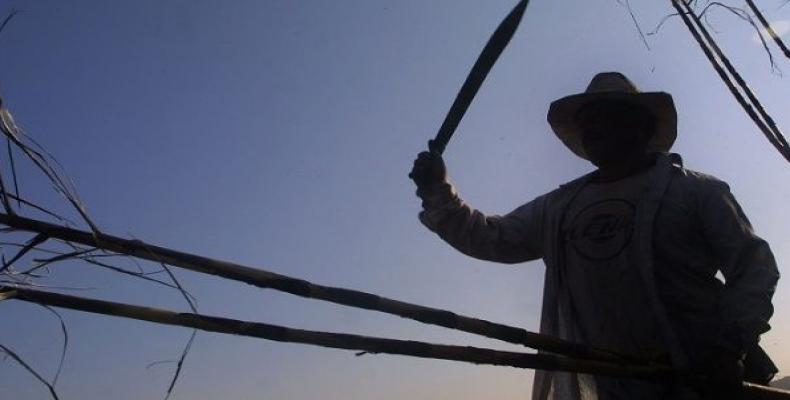Mexico City, November 9 (RHC)-- Members of the Zapatista-supported National Indigenous Congress (CNI) and Campesino organizations denounced that the new agrarian bill proposed by the National Renewal Movement (Morena) will potentially open the doors for further privatization of Indigenous lands in Mexico, in line with the neo-liberal reforms passed during the presidency of Enrique Peña Nieto.
During a press conference, CNI member Carlos Gonzalez Garcia said the legislation would continue with the privatization process started by the reform of ex-President Carlos Salinas de Gortari (1988-1994) in 1992, a reversal of the victories achieved during the Mexican Revolution.
Other Campesino and Indigenous organizations also denounced that the bill is “dangerous for the life of communities,” as its sixth article establishes that communities could form associations with private investors and turn their lands into ‘Type T’ shares available for rent to third parties.
The organizations believe these kinds of commercial associations should not have rights over woodland or agricultural lands, especially if they are community-owned. “They’re forgetting that the lands were obtained by the communities after an armed struggle 100 years ago, and that they use them not only to produce and exploit the existing natural resources,” said the organizations in a collective statement. “They’re the territory where we live, where we recreate our cultures and our coexistence as communities and Mexican peoples.”
The Morena bill recognizes local assemblies as the supreme decision-makers over community lands, but it also provides the necessary legal framework to authorize their use for the hydrocarbon and electricity industries. This could lead assemblies to hand over their lands, voluntarily or not, to companies for large scale production that could potentially harm the environment and foster inequality.
The organizations are worried that these regulations could “facilitate investors and outsiders to seize these resources, take away the profits and abandon them once they’re unusable. These stories happened before.”
An alternative, say the organizations, would be to grant mining and renewable energy concessions to the communities to foster the local economies and protect natural resources, instead of giving them away to large companies. The communities would then have a better chance of making decisions over the use of their lands.
Following a similar analysis, the 21st Century Plan de Ayala Campesino Movement 2.0 (Mcpasxxi) rejected the bill and announced they will present their own initiative at the Senate as an alternative to the neo-liberal model and the privatization of land.
The counter-proposal calls for a national referendum, in the fashion of the referendum carried out to decide over the fate of the new airport in which the peoples and communities from all Mexico would take place.
The present bill, they claim, fosters the privatization of land, doesn’t represent the interests of the majority and goes against the ideas presented by President-elect Andres Manuel Lopez Obrador, Morena’s leader, to transform Mexico.
The bill was proposed by Morena’s Senate coordinator Ricardo Monreal on October 23, and has been dubbed “the Monreal Law.” Having virtual control of both legislative houses since September 1st, Morena could pass the bill without resistance, unless organizations and individuals prevent it.
Mexico's indigenous congress rejects land reform legislation by Morena

Related Articles
Commentaries
MAKE A COMMENT
All fields requiredMore Views
- U.S. political prisoner Mumia Abu-Jamal turns 70, imprisoned for more than 42 years
- Tigres de Ciego and Leñadores de Las Tunas for retaliation in the Baseball Series
- Secretary General of UN Tourism arrives in Cuba
- Irish Nobel Peace Prize winner calls on Joe Biden to release Julian Assange in letter handed to U.S. Consulate
- Anti-polio vaccination: An effort of the entire Cuban society

